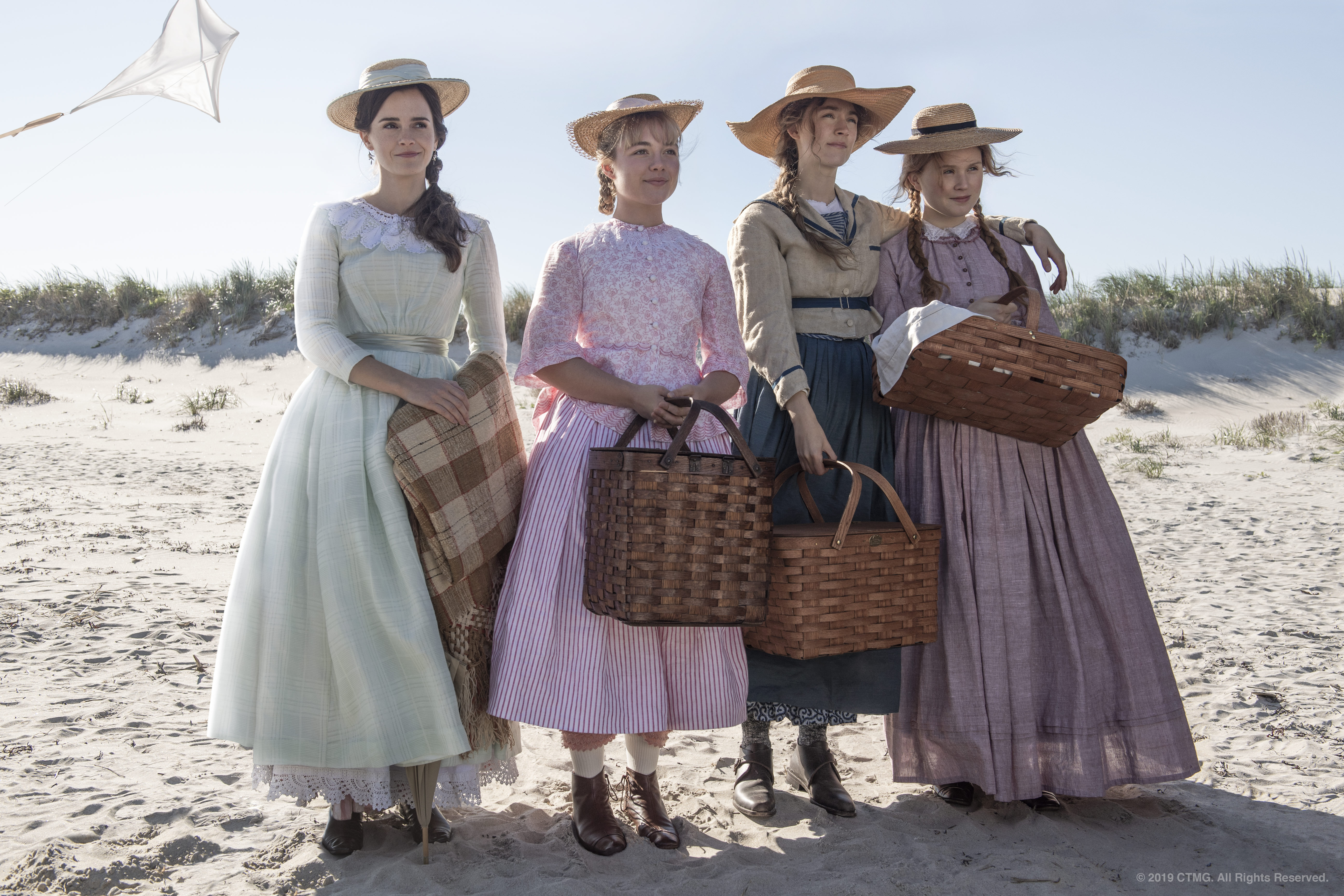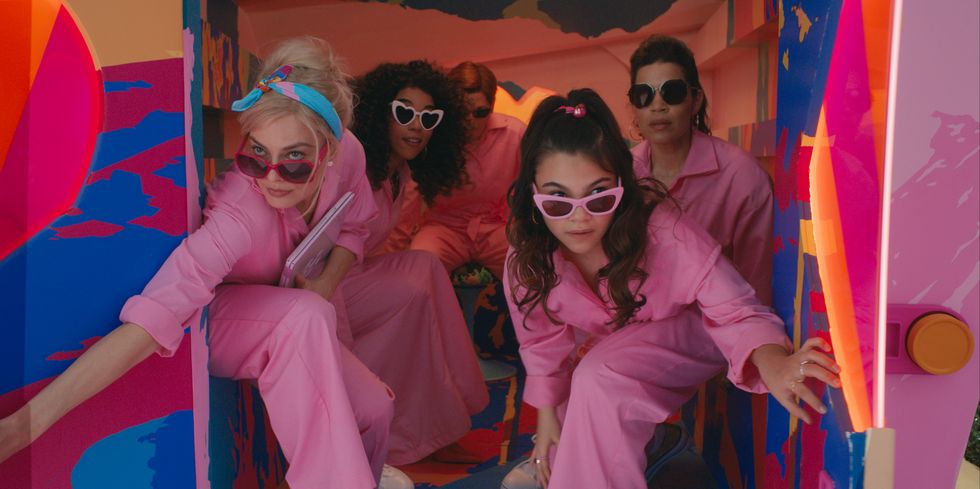Feminism in film is so on-brand right now. With blockbuster movies like the topical Barbie (2023) and the timeless classic Bridesmaids (2011) boosting the power of female-led films, cinema has truly enhanced its representation of women on the big screen—and it’s about time.
It’s been a long time coming. A lack of diverse female representation in Hollywood films dominated most of my childhood. It was only until the female-led classics of the early 2010’s that brought a new wave of female empowerment that is now at its peak with the recent release of Barbie. Before I talk about how much Barbie has meant to audiences, let’s go back to when feminism in film really hit its stride, changing the face of cinema forever.
Ground-breaking Bridesmaids
When it was announced that a new comedy flick focusing on the strained relationships between a group of bridesmaids would be gracing the silver screen back in 2011, it wasn’t very well received: “It’s just going to be another Hangover. But with women.” The condescending references of comparison to the 2009 blockbuster starring Bradley Cooper as a reckless groomsman on a raging stag-do almost tainted the build-up to the release of Bridesmaids. Expectations were less than enthusiastic. Little did we know that it would become the biggest female-led comedy of the decade and beyond. Looking back now, it seems ludicrous that such comparisons would ever be made about the film that ultimately changed the face of female representation on the big screen.
Written by SNL alum Kristen Wiig and her friend Annie Mumolo, Bridesmaids follows the antics of an eccentric group of—you guessed it—bridesmaids in the lead up to their friend Lillian’s (Maya Rudolph) wedding. The maid-of-honour and best-friend of the bride Annie (Wiig) suffers an array of hilarious misfortunes as she leads the bridal party (Melissa McCarthy, Ellie Kemper and Wendi McLendon-Covey) on a wild ride to the altar. A priceless competition ensues when she meets Lillian’s newest friend, the eager-to-please trophy wife Helen (Rose Byrne). It was Bridesmaids that launched the now-hugely successful comedic careers of comedy veteran Melissa McCarthy and Aussie actress Rose Byrne. Up until her stellar performance as Helen, Byrne had only been recognised for her dramatic endeavours in thriller series such as Damages, alongside Glenn Close.

Female Liberation
This group of outrageously funny women would ignite a sense of belonging in the millions of women watching across the world. We can immediately see ourselves and other women we know in the characters—haven’t we all been there when our best friend makes a new ‘best’ friend that we feel admittedly very threatened by? It was the relatability of Annie, the laugh-out-loud eagerness of Helen and the care-free nature of McCarthy’s Megan that ultimately elevated the film to cultural-phenomenon status. The movie remains to this day the highest-grossing film of director Paul Feig’s illustrious career. For the director of Spy (2015), The Heat (2013) and Last Christmas (2019), that is no mean feat.
“I always liked hanging out with women and found them really funny, and that would bump up against portrayals that I was seeing on the big screen and in comedy,” said Feig on why the film was so important to make. “You would see these women who you knew were funny and you would go, why aren’t they being funny? [Movies] turned them into being mean or personality-less.” Bridesmaids certainly turned the tide. Writers and directors were so inspired by the success of the movie, many felt empowered to follow in Feig’s footsteps and solely utilise the talents of female actors.
Enter Greta Gerwig
Following her Oscar-nominated breakthrough Lady Bird (2017) starring Saoirse Ronan, director and writer Greta Gerwig began her campaign to become one of the most recognised female directors of all time. And we’re all here for it. Feminism in film is her signature choice of project, particularly with the release of the seventh film adaptation of Little Women in 2019. Starring Saoirse Ronan, Florence Pugh, Emma Watson, and Eliza Scanlen as the four sisters engrained in literary history, Gerwig manages to create a modern adaptation for the ages.

She is the celebrated master of bringing a perfectly well-rounded female perspective to film. Gerwig’s empowering monologues are just one example of how women today feel so understood when they watch her movies. In Little Women, it’s Jo’s monologue on dealing with loneliness and her personal rejection of marriage against the societal notion that it’s “all a woman is fit for” that sets Gerwig’s presentation of the female experience apart. For Gerwig’s latest project, which saw the world turn the brightest shade of pink, the monologue mantle was passed to Ugly Betty actress America Ferrera, and she did not disappoint.
It’s A Barbie World And We’re All Living In It
It’s the movie that everyone is talking about—and for good reason. Since its release on the 21st of July, Barbie has blown the box office away. Gerwig has already made history when the film achieved the biggest debut ever for a movie directed by a woman. It has shattered records and warmed the hearts of Barbie-lovers and cinema-goers alike. We were all expecting a light, funny adaptation of the doll most of us played with as kids, but it was all these things and so much more. No one foresaw leaving the cinema emotional and feeling the most seen we have felt in a long time.

“It’s literally impossible to be a woman”, begins America Ferrera’s character Gloria as she gives a speech inspiring more people to stop and think. It was one of the biggest takeaways from the movie, with its content blowing up on social media. Her impassioned tour-de-force resonated with all generations—resulting in many audiences applauding during the movie—and is likely to remain a piece of cinema that is revered for many years to come.
Feminism in film has come so far in such a short space of time. The overwhelming response to films like Bridesmaids and Barbie is likely to secure the future of cinema, with studios serving to empower women like never before on the big screen. The directors of these two movies went where no other filmmaker had gone before, championing feminism in film and in turn changing the course of cinema history.
Thanks to these films, women now feel more represented on the big screen—a fact that future filmmakers will forever have to consider if they wish to succeed in the film industry. The increased representation of women in film should be marvelled, as should all the wonderful women we personally know and love. Women are remarkable and it is a testament to all our adventures, difficulties, quirks, and strengths, that cinema is finally utilising the female experience to the fullest extent. Let’s keep it going.
Words by Sara Baalla
Support The Indiependent
We’re trying to raise £200 a month to help cover our operational costs. This includes our ‘Writer of the Month’ awards, where we recognise the amazing work produced by our contributor team. If you’ve enjoyed reading our site, we’d really appreciate it if you could donate to The Indiependent. Whether you can give £1 or £10, you’d be making a huge difference to our small team.
